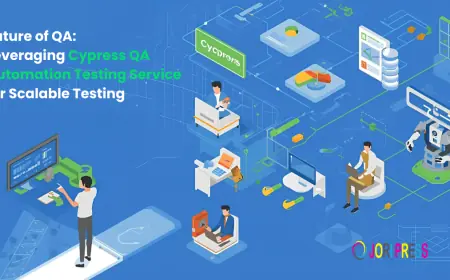Struggling to Apply Legal Theory to Real-World Legal Problems
They know the theories given in classes, but they struggle when experience is demanded of them to apply the theories to practical legal matters. Such a lack of correspondence between what we learn in the classroom and can apply in the real world is not unusual, and it can be exasperating.

Students of law are usually in a puzzling position. They know the theories given in classes, but they struggle when experience is demanded of them to apply the theories to practical legal matters. Such a lack of correspondence between what we learn in the classroom and can apply in the real world is not unusual, and it can be exasperating.
Online law essay help is in demand among many students who aim to cope with this difficulty. Professional academic services help students to understand cases, statutes, and the works of other scholars in order to be able to apply theory to a practical situation.
In the same way, research on final year studies can be found using law dissertation help. Through these specialised services, the researchers can not only learn theory but also connect it to facts on the ground, as well as the law and the social issues that impact society.
Why the Theory-Practice Gap Exists
It is totally different between studying an ordinary law book and doing an actual legal case. The classroom is concentration-oriented. The courtroom requires doing and resolutions.
● Theory Is Often Taught in Isolation
In most of these programs, there is a lack of practical examples with regard to teaching theory. The constitutional principles might be taught to students, but not their application in real scenarios in matters of dispute.
● Limited Real-World Exposure
Unless students intern or engage in moot courts, they rarely experience how legal arguments unfold in practice. That limits their ability to connect theory with application.
● Complex Problem-Solving
Legal cases are messy. They don’t come with clear rules. Students need to analyse facts, pick relevant theories, and apply them wisely. That takes more than memorisation.
The Importance of Practical Legal Thinking
The problem with learning theory is that it only counts when you are capable of putting it to good use.
● Making Better Legal Arguments
Once you know how to translate theory into practice, you are a better lawyer. It is not only citation of case law; it is case construction.
● Becoming a Confident Professional
Future lawyers must feel confident in real situations, not just exams. Practical application builds that confidence over time.
● Scoring Higher in Assessments
Assignments, presentations, and even oral exams often test how well you can apply what you’ve learned. Real-world thinking helps you score better.
Best Ways to Improve Application of Legal Theory
With proper measures, you can get better. This is what works:
● Case-Based Learning
Instead of studying the legislation, learn about the real rulings. Break down the facts, the use of law and the result.
● Practice Problem Questions
Many professors give hypothetical questions. Take them seriously. They're the best way to develop legal application skills.
● Study Groups and Peer Discussions
Discuss with students why they would approach a legal issue. You’ll get fresh perspectives and sharpen your thinking.
Overcoming Exam Pressure
Various students are familiar with the content but fail to perform in the exams because of panic, pressure or that they were unaware of the method to start writing a legal answer. Most learners want to find out the best means to avoid problems with their exams, and the truth of the matter is that application is the key. Once you start seeing how theory works in real-life examples, your exam writing improves dramatically.
Technical Disruptions Make It Worse
Online students who engage in digital filing of online courses or assignments usually experience problems that stop their flow. When the deadlines are near, they can become significant stressors.
The frustration is increased by technical problems during assignment submissions where the submitted work gets lost, for example, by upload failure, internet disconnection or some other formatting issue. That is why it is necessary to submit the work early and make backups.
How Online Help Can Boost Legal Thinking
Services related to academic support services are not shortcuts. They provide learning data and practice which can be used to better understand. They offer:
● Clear Structure and Guidance
Through online law essay help services, one can find properly organised examples that can demonstrate how to relate theory to practice in every paragraph. This accrues clarity in writing.
● Advanced Research Integration
Law dissertation help ensures your theoretical work relates to ongoing legal debates, real legislation, and policy discussions. That adds relevance to your research.
● Professional Legal Examples
You can learn how experts use legal principles to address contemporary issues by reading well-written articles or dissertations. What a potent method of learning.
Applying Legal Theory in Real-World Scenarios
The following are some of the ways to use theory effectively:
● Criminal Law
Just mentioning mens rea and actus reus is insufficient. Apply them to the case of theft or assault, where purpose and execution have to be established.
● Contract Law
Use them as an instance rather than merely stating the components of an agreement that is enforceable. Was there an offer? Acceptance? Consideration? What made the contract binding?
● Human Rights Law
Discuss how that right plays out in court when weighed against public safety or defamation laws.
Practical Tools for Law Students
You can enhance your implementation of legal theory through tools and resources that will build up your competence.
● Legal Journals – Read columns and case commentaries to discover whether or not law professionals think like you.
● Online Forums – Participate in law communities on Reddit or Quora, or join law student groups where you can ask questions and learn from others.
● Mock Moot Courts – Arguing in mock arrangements or on the Internet.
Final Thoughts
The fact that it was difficult to apply legal theory is no embarrassment at all, but it is in our learning process. However, to become a proficient, confident and employable legal professional, and to close that massive gulf between what you can do and what you will need to do as a lawyer, you will need to take some deliberate initiative to fill that gap. In the long run, theory and practice will begin to feel like they belong on both sides of the same coin and not two utterly different worlds.
What's Your Reaction?
 Like
0
Like
0
 Dislike
0
Dislike
0
 Love
0
Love
0
 Funny
0
Funny
0
 Angry
0
Angry
0
 Sad
0
Sad
0
 Wow
0
Wow
0

















































